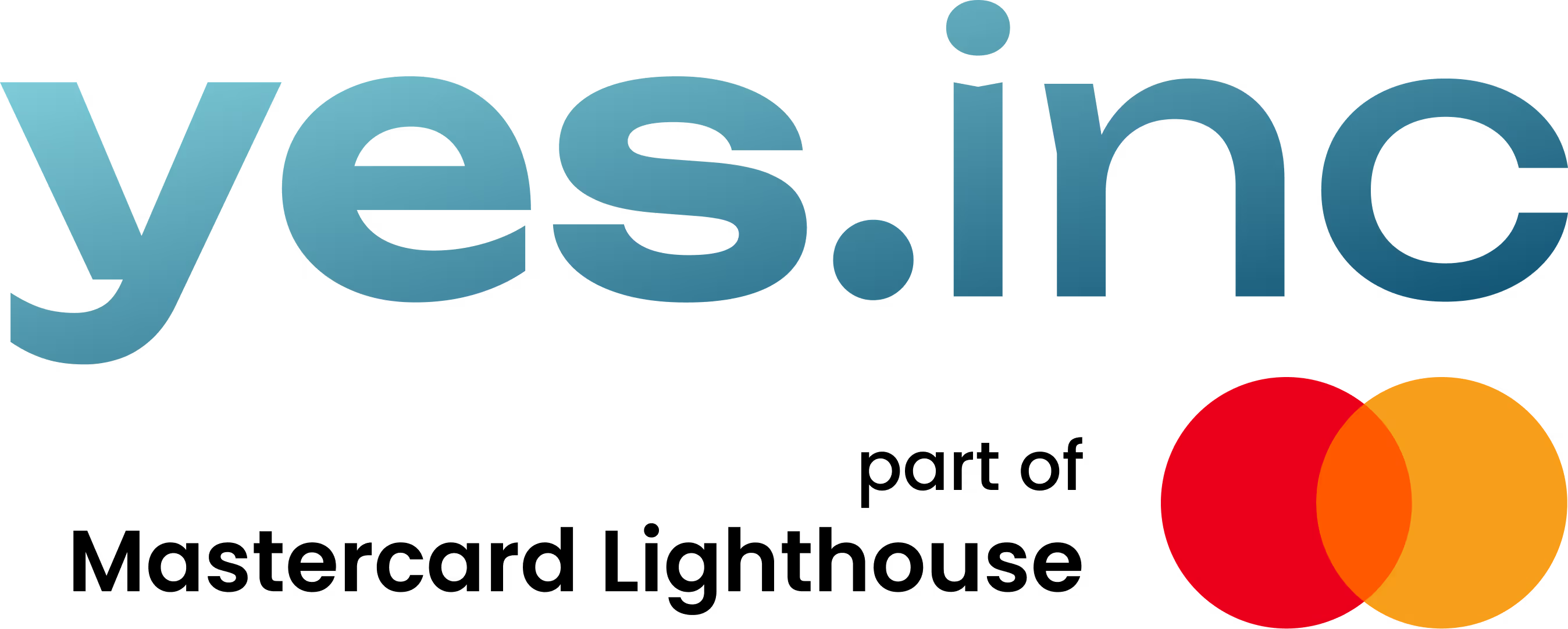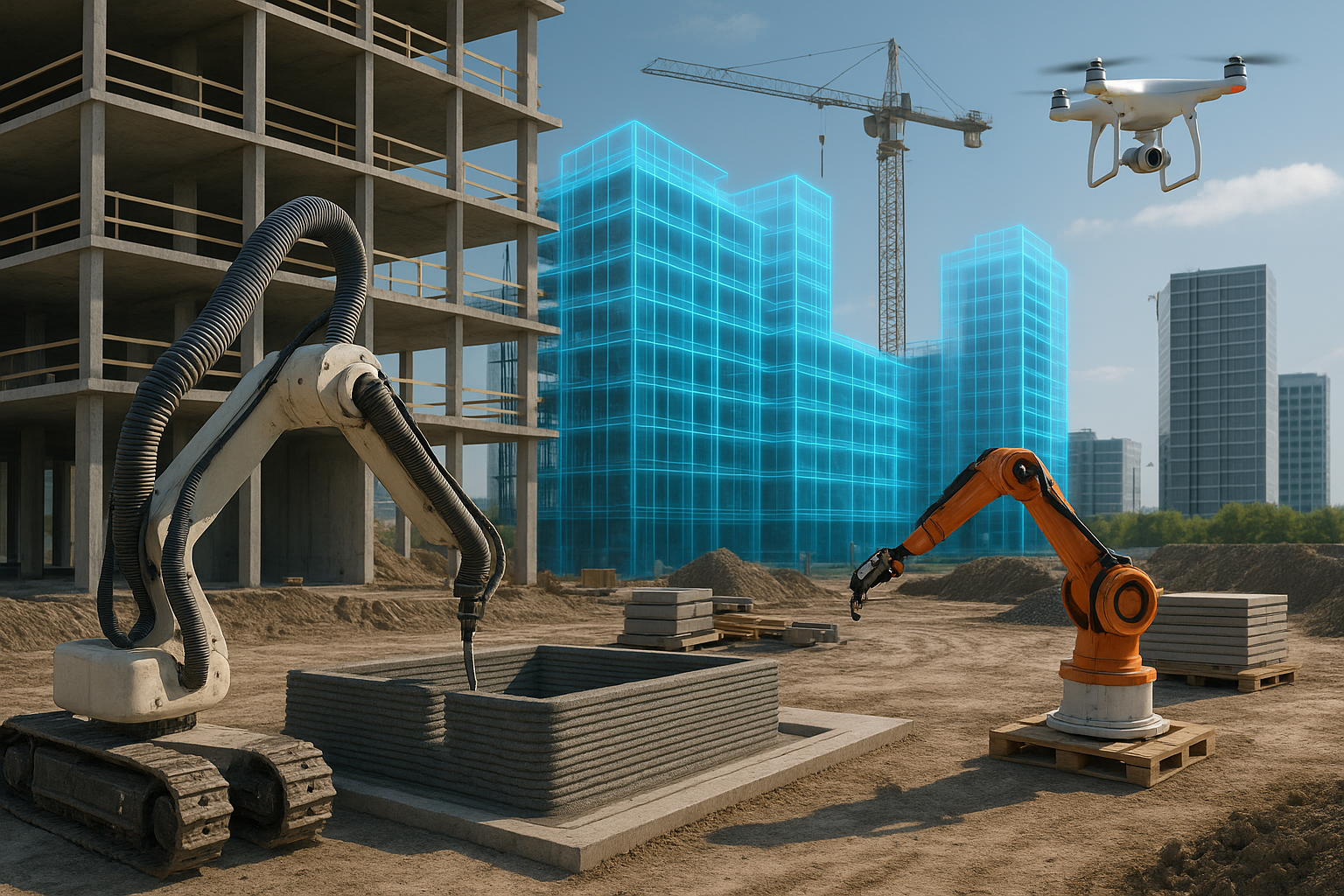- Generative AI, additive manufacturing, drones, BIM, connected-site platforms, robotics, and digital twins dominate construction tech in 2025.
- Expert insight: Christian Reed (MIT-trained engineer and founder of REEKON Tools) explains how Bluetooth-enabled digital tape measures and on-device AI turn raw measurements into structured job-site data, cutting errors and paperwork.
- Looking ahead: Reed expects AI-driven search across messy project files, computer-vision “take-offs,” and parameter-based design tools to be the next five-year game-changers.
- Market momentum: Procore’s Q1-2025 revenue hit $311 million (↑15 % YoY), underlining strong demand for connected-construction software and the broader digital shift.
- Why it matters: Together, these trends promise faster schedules, lower rework, safer sites, and greener buildings that early adopters are already converting into profit.
Construction Technology Trends to Watch in 2025
1. Generative AI moves from lab to job site
Epicflow notes that generative models are already checking code compliance, auto-sketching design options, and optimising site layouts (Epicflow).
Reed’s view:
“Once measurements stream straight from a tool into the cloud, machine-learning models can tag them ‘header height,’ ‘window width,’ and so on so site teams don’t waste minutes hunting through drawings.”
By fusing capture with context, AI shrinks the gap between field work and decision-making.
2. Additive manufacturing scales up
3-D-printed walls, bridges, and façade panels slash material waste and labour hours (Epicflow). Expect multi-material printers and on-site mixing rigs to appear on larger commercial builds.
3. Eye-in-the-sky drones
High-resolution flights spot hairline cracks and verify earth-works volumes long before they cause rework (Epicflow).
4. BIM as the digital backbone
BIM adoption is rising as teams demand richer 3-D context and clash detection. Integrations with IoT sensors are next, closing the loop between model and reality (Epicflow).
5. Fully connected construction sites
Networks of sensors, wearables, and smart tools keep everyone on the same data page (Epicflow).
Reed’s implementation:
“Traditional tape measures sell in the tens of millions, yet scribbled notes still get lost. Our digital tape measures beam readings over Bluetooth into templated forms or directly onto marked-up PDFs in real time, eliminating translation errors and speeding coordination.”
The approach validated when REEKON’s T1 digital tape measure raised $1.1 million on Kickstarter in 24 hours (LinkedIn) shows how even simple tools can become IoT nodes.
6. Robotics and on-site automation
Cobots that tie rebar or lay bricks mitigate labour shortages while improving safety (Epicflow).
7. Digital twins for continuous improvement
AI-powered twins mirror progress, predict maintenance, and visualise “what-if” scenarios before costly mistakes surface (Epicflow).
Challenges & Opportunities
“The technology is here; adoption is the hurdle,” Reed cautions. “Tools have to be so obviously better than pen-and-paper that even small firms can’t ignore them.” His priority list for the next five years:
- AI-powered data organisation that lets workers query project info in plain language.
- Computer-vision take-offs that locate every instance of a component across plan sets.
- Parametric design engines that adjust models instantly as specs change.
Market Signals: Procore’s Growth Story
Industry appetite for connected platforms is mirrored in Procore’s latest earnings: Q1-2025 revenue reached $311 million with 95 % gross-retention and the release of its “Future State of Construction” AI report (investors.procore.com). The numbers reinforce that digital workflows are no longer experimental, they’re a competitive mandate.
Takeaways
- Digital capture, AI, and real-time connectivity are converging to slash rework and accelerate schedules.
- Simple field tools like smart tape measures are gateways to enterprise-wide data strategies.
- Firms that adopt now will ride cost and safety advantages as platforms such as Procore continue to mature.

Meet the Expert: Christian Reed
- Founder & CEO, REEKON Tools — creator of the T1 digital tape measure.
- B.S. & M.S. in Mechanical Engineering, Massachusetts Institute of Technology (focus on human-computer interaction for power tools).
- Former hardware lead at Formlabs, shipping four generations of SLA 3-D printers.
.webp)



